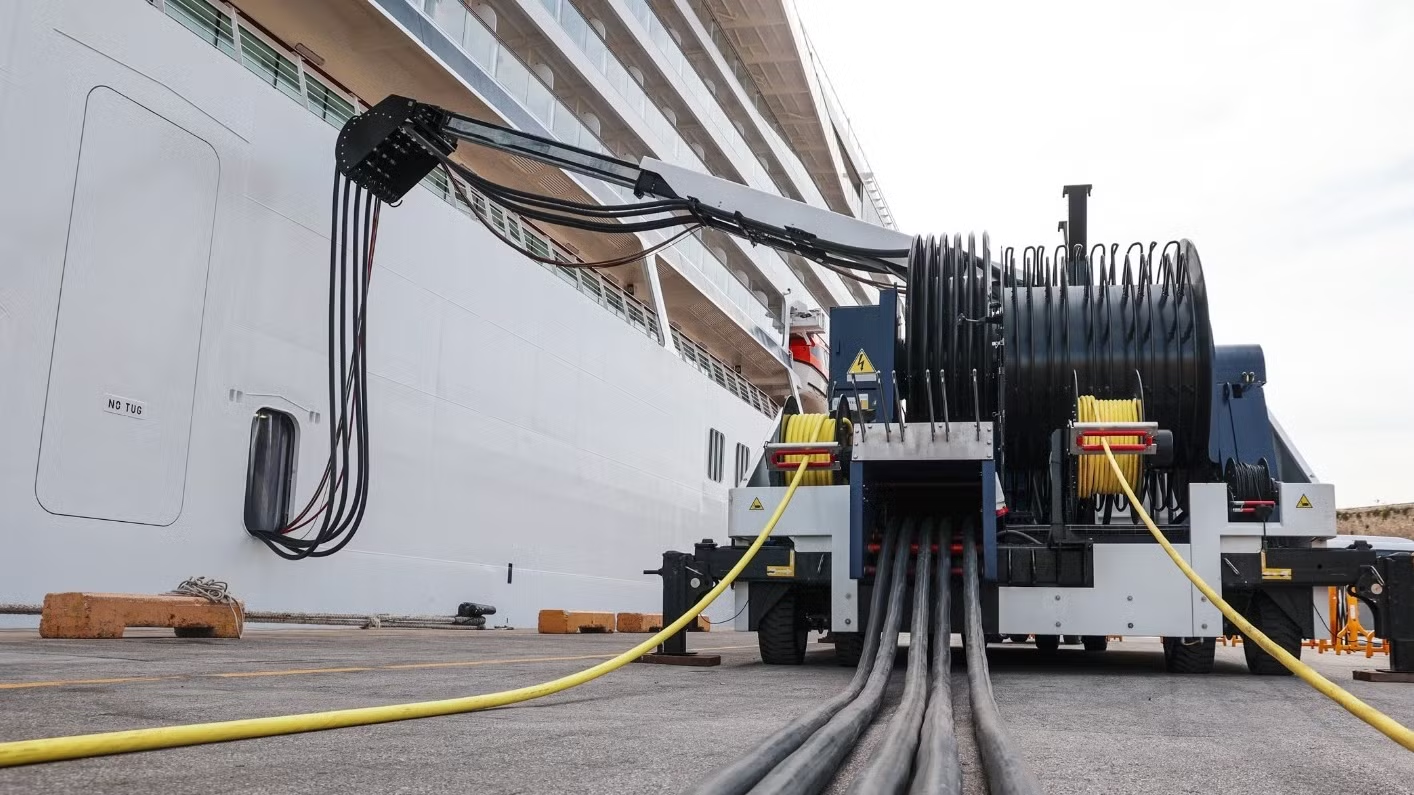In its latest Safety Digest, UK MAIB presents an incident where cruise ship’s malfunctioning pitch indicator caused the master to unintentionally push the bow into the berth, resulting in damage.
An expedition cruise ship was arriving in port on a beautiful summer’s morning. There was little wind and only a slight current. The ship had a portable propeller pitch indicator that was plugged into whichever bridge wing control console the ship was going to be navigated from when it came alongside the berth. For this port arrival, it had been plugged into the starboard bridge wing and tested as part of the arrival procedure.
As the cruise ship approached the berth, control was transferred to the starboard bridge wing console, and the master, pilot, and C/O went out to bring the ship alongside. The ship was moving at 2.5 knots. When they arrived on the bridge wing, the portable propeller pitch indicator was not working, so the master returned to the center control console, took control of the ship, and set the pitch to half astern before transferring control back to the bridge wing. Meanwhile, the C/O was inspecting the plug of the pitch indicator, trying to get it working again.
The ship was closing on the berth, and the master tried to use the bow thruster to push the ship’s bow away. However, when the control lever was moved, it had the opposite effect and pushed the bow towards the berth, where it struck one of the hinged fenders. The fender rotated as it scraped along the ship’s side, breaking its securing chain and puncturing the side of the ship, thankfully well above the waterline (Figure 1). The ship was safely brought alongside, and an investigation began. The failure of the pitch indicator was due to a poor connection where it plugged into the console, and although the indicator was not working, the controls were.
When the master first transferred control to the bridge wing, moving the pitch lever increased the pitch of the propeller, but there was no indication that the pitch had changed, and the ship’s speed increased, causing it to approach the berth quicker than intended. The question now had to be why, when taking avoiding action, had the bow thruster pushed the bow into the berth and not away from it? The ship had two thrusters, one in the bow and one in the stern. The controls for the two thrusters were separate: the stern thruster was a vertical lever set in a graduated hub, and movement of the lever to starboard would produce a thrust to starboard and vice versa; the control for the bow thruster was a horizontally mounted lever that rotated a pointer on a dial.
The upshot of the design of the controls was that to thrust to port using the stern thruster, the master would move the lever to the port side, but to thrust to port on the bow thruster, the lever on that control was moved to starboard. The master was new to the ship and inexperienced with the controls, and in trying to avert contact with the quay, had moved the lever in the wrong direction and thrust the bow into the berth rather than away from it. The C/O, distracted by trying to fix the pitch display, did not spot the master moving the control in the wrong direction. Fortunately, the only injury was to the bridge team’s pride.
Lessons learned
Equipment → The design of the two thruster controls differed and required different manual inputs to produce the same effect. To connect the user to the technology, the human-machine interfaces should be carefully considered when installing control systems into ships; the best solutions are intuitive and simple to use.
Margin of safety → By the time the failure in the portable propeller pitch indicator was identified, it was too late to do anything about it. Always leave enough time to react to a discrepancy when changing the mode of operation, for example, switching to a different control station.
Monitor → Both the master and C/O became focused on the task and were distracted by the failure of the portable propeller pitch indicator. Consequently, the ship’s progress was not being effectively monitored and the impending contact with the berth was not avoided.































































